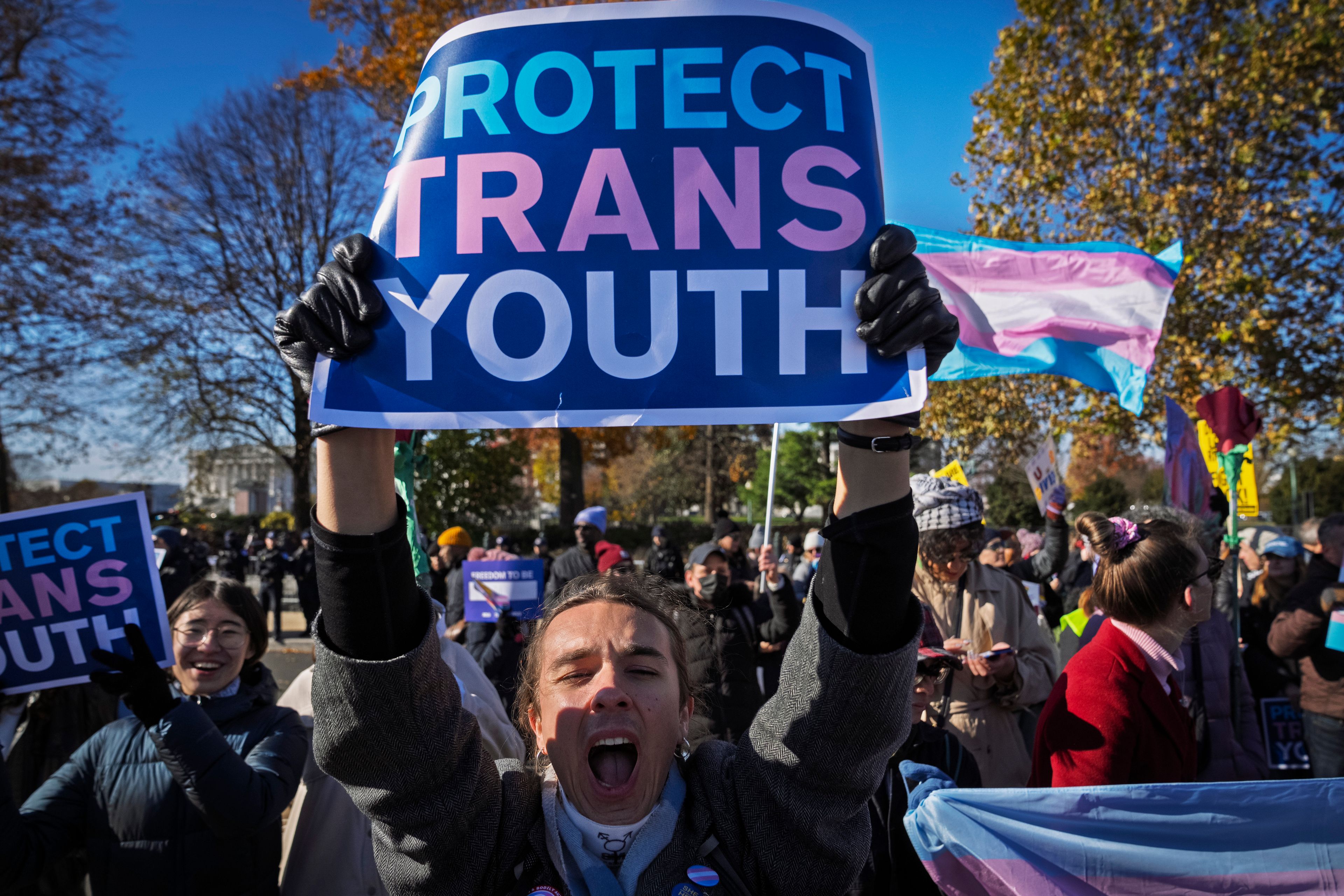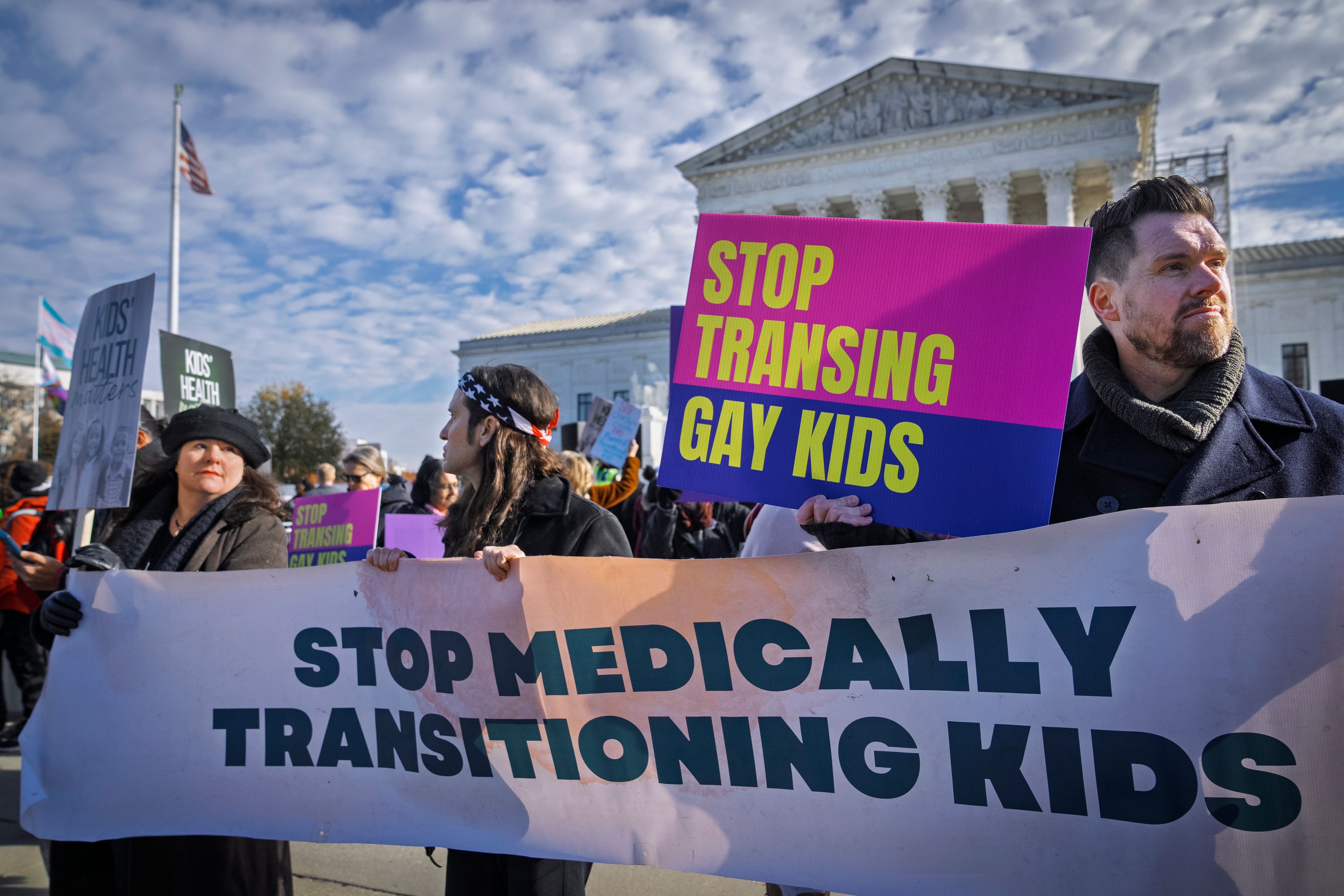Takeaways from the Supreme Court arguments on transgender health care ban: Conservatives skeptical
WASHINGTON (AP) — The Supreme Court heard the
WASHINGTON (AP) — The Supreme Court heard the most high-profile case of its term on Wednesday, weighing Tennessee's ban on transgender-affirming health care for minors.
Similar laws have been passed by other conservative-leaning states. Challengers say they deprive kids of treatment they need, while the states defend them as protecting minors from life-changing decisions.
The conservative-majority court appeared ready to uphold Tennessee's law. It comes against the backdrop of escalating pushback to transgender rights, notably from President-elect Donald Trump.
Here are some takeaways from the arguments:
What did key conservative justices say?
In the arguments on Wednesday, five of the court's six conservatives seemed skeptical of the argument that the ban on gender-affirming care for minors is discriminatory.
Two key conservatives, Chief Justice John Roberts and Justice Amy Coney Barrett, repeatedly challenged the arguments from lawyers challenging the ban.
Roberts questioned whether judges should be weighing in on a question of regulating medical procedures, an area usually left to state lawmakers. Barrett sounded skeptical of the administration’s argument that the law discriminates because of sex.
Conservative Justice Neil Gorsuch was notably silent, asking no questions.
The court’s other three conservatives seemed to favor Tennessee. The three liberals largely backed the challengers, with Justice Sonia Sotomayor highlighting the risks of suicide among kids with gender dysphoria.
What's the court's track record on the issue?
The litigation marked only the second time the high court has heard a case that represented a fundamental test of transgender rights.
In a case involving LGBTQ+ rights four years ago, two conservative justices, Roberts and Gorsuch, joined with its liberals to expand protections for transgender workers. Barrett wasn’t on the bench at the time and had no record on transgender rights.
Gorsuch wrote the opinion, which left open claims of discrimination in other situations.
What happens next?
The court isn’t expected to rule for several months. The decision could have direct effects in the 26 states that have passed versions of the bans.
Supporters of the measures argue the gender-affirming treatments are risky, and the laws protect kids from making decisions before they’re ready.
Challengers say many medical interventions come with some degree of risk, and families should be able to weigh those against the benefits. The arguments in favor of Tennessee’s ban could also be used to back federal restrictions, said Chase Strangio, the ACLU attorney who represented three families challenging the law.
Tennessee Attorney General Jonathan Skrmetti said that his state’s arguments would still let each state set its own policy.
Connect with the Southeast Missourian Newsroom:
For corrections to this story or other insights for the editor, click here. To submit a letter to the editor, click here. To learn about the Southeast Missourian’s AI Policy, click here.











